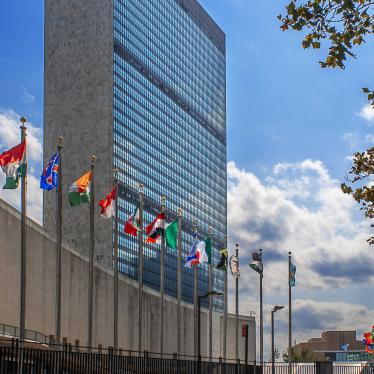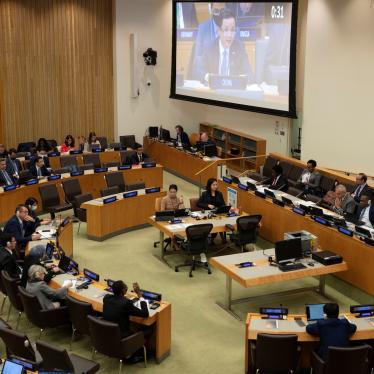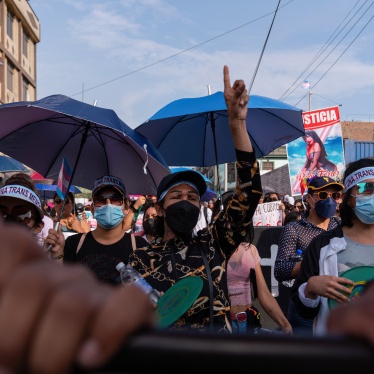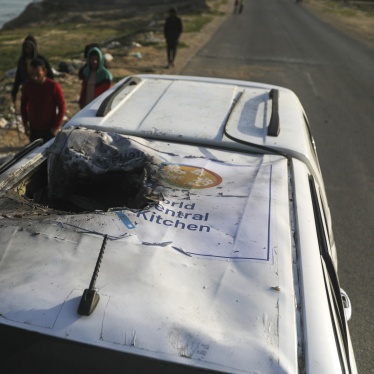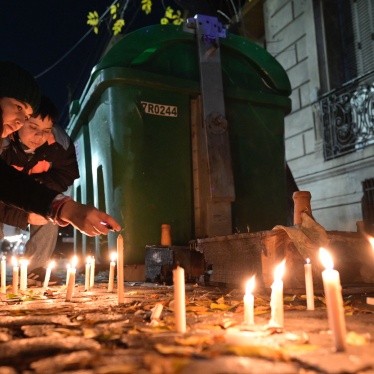NEW YORK -- If President Clinton acts before Dec. 31, he can correct one of the most embarrassing foreign policy mistakes of his tenure. His signature on the treaty for the International Criminal Court would signal for the first time firm U.S. support for the most important new human rights institution in 50 years.
The International Criminal Court will be a global tribunal to bring to justice those responsible for genocide, war crimes and crimes against humanity. A diplomatic conference in July 1998 adopted a treaty to establish the court. Once 60 governments ratify the treaty, probably by mid-2002, the court will be launched. Already, 120 governments have signed the treaty, indicating an intention to ratify, and 25 have completed ratification. The court's supporters include virtually every U.S. ally.
Traditionally, the United States has championed such international institutions of justice. From Nuremberg to the war crimes tribunals for Rwanda and the former Yugoslavia, the United States has supported bringing the world's most heinous human rights criminals to justice. In several speeches, President Clinton has endorsed the International Criminal Court in principle. But the administration has been equivocal on the details.
Driven by the Pentagon and its congressional allies, the administration has spent several years trying to guarantee that the court would never prosecute an American. Predictably, diplomats from even our closest allies rolled their eyes at such audacity. Their refusal to embrace this selective vision of justice led Mr. Clinton to withhold his signature from the treaty.
The administration fears that America's enemies might launch unwarranted, politically motivated prosecutions of U.S. troops or officials. But to prevent such unfounded prosecutions, the court treaty includes numerous safeguards -- the highest standards of due process, scrutiny of proposed charges by multiple panels of judges, and liberal procedures to remove a prosecutor for misconduct.
Most important, any government can deprive the court of jurisdiction over its nationals by conducting its own good-faith investigation and, if appropriate, prosecution. Because the United States vows to prosecute any service member who commits war crimes or other atrocities, the prospect of the court pursuing an American is remote.
These safeguards were more than enough for America's allies, but not for the administration. Its fear that the court might not apply these guarantees conscientiously is what led it to try to exempt U.S. citizens altogether from the court's reach, even if prosecution were warranted.
As a breach of the principle of equal justice for all, U.S. policy has been wrong. As a tool to protect Americans from unjustified prosecutions, it has now also become counterproductive.
Withholding the president's signature from the treaty may have made sense as a bargaining chip in an effort, however misguided, to secure an exemption for Americans or perhaps even to discourage the court's creation.
But now, as signatures and ratifications of the treaty rapidly mount, the court is an inevitability. Moreover, through repeated negotiating sessions, the international community has made clear that it will never allow an exemption for Americans.
Today, if the administration wants to ensure that the court's safeguards against unjustified prosecutions are conscientiously applied, it should try to shape the court's culture, particularly in this critical, formative stage. As an active participant in the Rwandan and Yugoslav war crimes tribunals, the U.S. government has helped uphold the highest standards of due process. A similar strategy is needed for the court.
But the U.S. government will have little influence if it sits on the sidelines and pouts. Ideally, the United States should ratify the court's treaty, but Sen. Jesse Helms, whose assent as chairman of the Senate Foreign Relations Committee is necessary, has declared any ratification proposal "dead on arrival."
Yet Mr. Clinton can sign the treaty without Senate approval, so long as he acts by Dec. 31. That is the last date the treaty permits signature as a step toward ratification rather than completed ratification. No U.S. president will have this opportunity again.
Someday, U.S. ratification should still follow. In the meantime, the president's signature, by demonstrating support for the court, would maximize the U.S. government's ability to bolster the professionalism that so far has infused the court's formation. By embracing this landmark institution, it would also put President Clinton on the right side of history.
